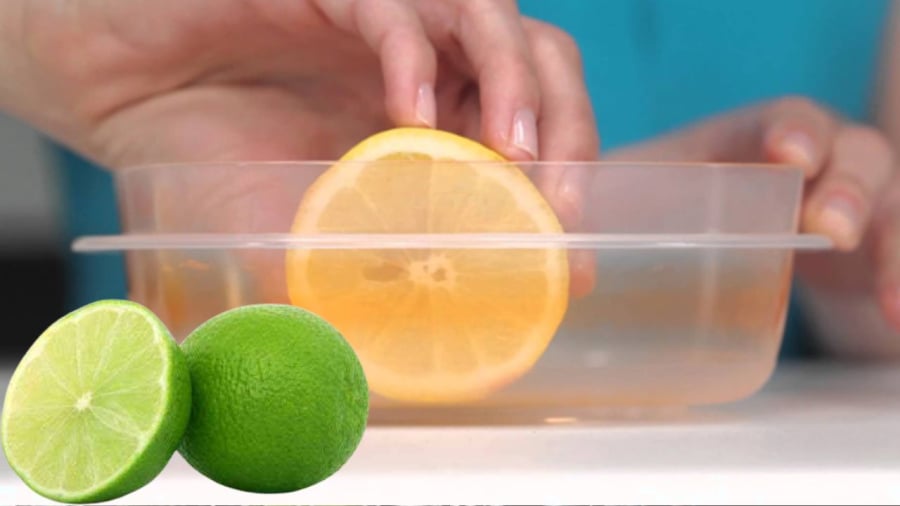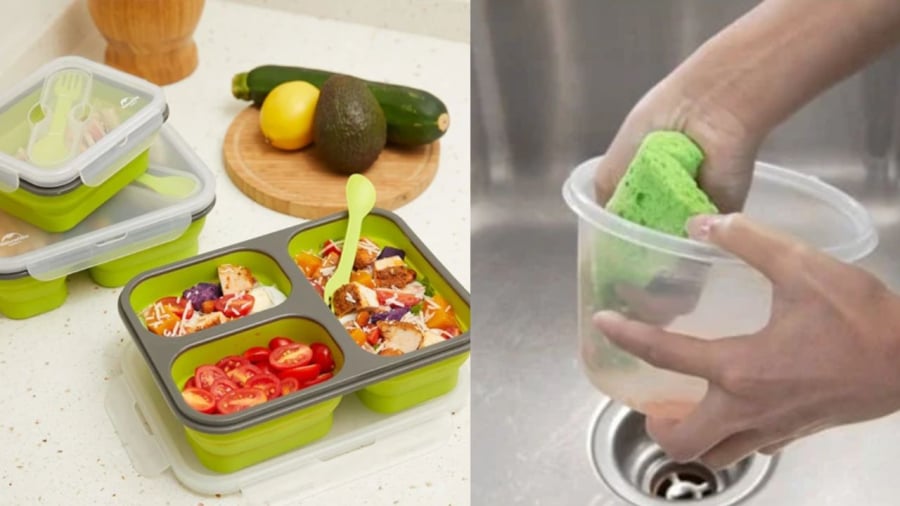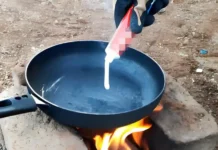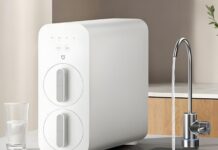Plasticware is durable, lightweight, and doesn’t shatter when dropped. However, it can be challenging to clean when greasy. Even after multiple washes, it sometimes still feels slippery. Washing plastic items becomes even more difficult when the temperature drops. Try the following tips:
Use Lemons
Lemons contain citric acid, which helps break down grease, leaving a pleasant scent. Instead of discarding the lemon peels after juicing, use them to scrub your plastic items. Alternatively, cut a few slices and add them while washing. Lemons effectively remove grease and neutralize odors.

Scrubbing with Lemon Helps Remove Grease
Vinegar to the Rescue
Vinegar, whether the cleaning variety or the edible kind, is primarily made of acetic acid, which can effectively cut through grease, similar to lemons. Soak a paper towel with vinegar and wipe down the plastic surfaces to remove the grease. Follow up by washing with regular dish soap and water.
Baking Soda
Baking soda is another kitchen hero. It helps clean a variety of dirty utensils and corners. Create a paste by mixing baking soda with water in a 3:1 ratio—apply this paste to the plastic items and then rinse. You can also soak them for 1-2 hours for tougher grease.
Hot Water and Salt
At higher temperatures, grease becomes less viscous and easier to wash away. Salt also aids in cleaning. Boil some water, add salt, and then use this mixture to wash your plastic items.

Hot Water Helps Remove Grease
Notes on Washing Plastic Items:
When plastic utensils, chopsticks, or spoons become greasy, be careful not to scrub too hard, as it may damage the surface. Use paper towels to absorb excess grease first, and then proceed with the cleaning methods mentioned above.
When rinsing with water, do so under running water to ensure that the grease is washed away immediately. Avoid soaking them in a basin of water, as the grease will float on the surface, re-coating the items when removed. Rinse each item individually under running water for the best results.

































